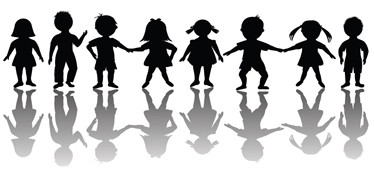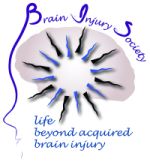What to Expect from Your Child:
The following changes may affect your child’s behaviour. This is not an exhaustive list. Your child may experience many of these changes or none at all:

- Fatigue
- Irritability, angry outbursts, and impulsiveness
- Passive behaviour
- Depression
- Forgetfulness
- Poor organizational skills
- Difficulty following directions
- Immature behaviour
- Inappropriate sexual behaviour
Fatigue
Fatigue is the most common problem children experience after sustaining a brain injury. Your child may also suffer from vision problems, light sensitivity, or headaches that they did not have before the injury. To prevent fatigue, you may need to give your child rest periods in a quiet place. Remember, it is important that your child participate in school and other activities only when they have the mental and physical energy to do so.
Irritability and Angry Outbursts
Irritability and angry outbursts are also common among children learning how to deal with the stimulation of school, day care and/or playgrounds. Look at what precedes the behaviour. Do you notice a pattern? Is there something you can change, such as introducing a rest period, that will help prevent or reduce the frequency of the behaviour?
Immature or Inappropriate Behaviour
Immature behaviours include interrupting frequently, making tactless remarks, displaying messy eating habits, or repeating words over and over. Inappropriate behaviours may also include making inappropriate sexual comments, or gestures or actions that are out of context.
Grief, Guilt & Depression
Many parents of young brain injury survivors experience grief, guilt, and/or depression over what has been lost. These are normal emotional responses. You need to grieve your losses and so may your child. You may feel guilt over the circumstances of the injury even if it could not reasonably have been prevented. Guilt is often expressed as anger and blame directed at others.
Depression is another common response. If you or your child are finding it difficult to move through the emotions, contact your local school board, Regional Health Authority. Local Child and Family Service Authority or local Brain Injury Association and ask about counseling.
Acquired Brain Injury: Returning to School
In the case of a child with a brain injury, both the family and the child may be eager for a return to school. There are resources available to assist with this transition:
- In the education system, most school boards provide special needs services, so your child does not necessarily have to attend a specific school. The manner in which schools provide services, however, may vary.
- Your local brain injury association can be of assistance when your child returns to school. They can provide education on brain injury to your school, consult with teachers, and provide a link to the hospital and other medical services.
- Health Professionals. The health professionals most likely to be involved with your child?s return to school are psychologists, speech language pathologists, and occupational therapists.
Brain injury Associations, health professionals, and the education system should work as a team with the family and child. Because school is a highly stimulating environment, it will be difficult at first to your child to deal with all the noise and activity. This is why many children return to school gradually. Your child may start by attending a few hours, two or three days a week, without educational demands. As they gain energy, attendance is gradually increased and a curriculum started. Eventually, your child may be able to attend full days, five days a week.
In rural areas, transportation limitations may mean your child is at school for longer periods than appropriate. If fatigue in school is a problem, ask if your child can have a rest period.
